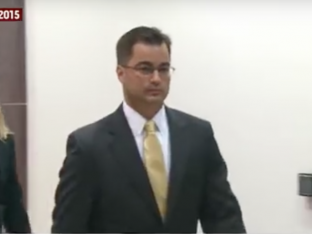 The legal watchdog group Judicial Watch filed its response to a motion to prevent any audiovisual recording of the deposition of Bryan Pagliano, a former aide to Hillary Clinton. Pagliano is reportedly the individual who set up and maintained Clinton’s private e-mail server.
The legal watchdog group Judicial Watch filed its response to a motion to prevent any audiovisual recording of the deposition of Bryan Pagliano, a former aide to Hillary Clinton. Pagliano is reportedly the individual who set up and maintained Clinton’s private e-mail server.
On Wednesday, Pagliano’s lawyers filed a motion that stated their client will decline to testify at a deposition next week in a Freedom of Information Act (FOIA) lawsuit. The motion states Pagliano will appear at the deposition solely to make an official record that he invoked his right to not incriminate himself under the Fifth Amendment. As such, Pagliano’s lawyers requested the deposition be “recorded solely by stenographic means.”
In a blog post on Thursday morning, George Washington University Law Professor Jonathan Turley discusses the potential impact of Pagliano’s decision to remain silent and concludes that it is likely welcome news to the Clinton campaign.
Turley writes, “If top aides will claim faulty memories or invoke their right to remain silent, the only disclosures before the election would have to come from the FBI or Congress.” And if the FBI does not bring charges, then Pagliano’s continued silence will essentially “bury the truth about what occurred in the controversy.” Turley writes that would seem appropriate for Judicial Watch to request “the scope of any immunity deal that would already protect him from such disclosure.”
Judical Watch responded to Pagliano’s motion on Thursday, stating the video deposition is necessary to help Judge Sullivan in making an assessment of Pagliano’s demeanor in asserting his Fifth Amendment right. Furthermore, Judicial Watch stated Pagliano’s motion is unnecessary because of the existing protective order that prevents the release of any testimony, pending a further hearing.
The conservative legal watchdog also argues that Pagliano’s concern about tainting a potential jury pool is unfounded.
“In any event, Mr. Pagliano’s suggestion that a video of him invoking the Fifth Amendment could taint a “potential jury pool” (Motion at 4) is irrelevant as no jury will be impaneled in this case. Hence, no harm can result from a video being created,” the motion states.
Finally, Judicial Watch takes issue with what it describes as repeated attacks on its motives in pursuing the case.
Finally, this motion represents the second time in the past week that a former State Department employee has attacked Plaintiff’s motives in pursuing this case and in conducting discovery. See Motion at 2 (describing this as “a lawsuit with an undisputed political agenda”). As the Court has stated, this case is about the public’s “right to know details related to the creation, purpose and use of the clintonemail.com system.” Plaintiff has proceeded professionally and cautiously at each stage of this litigation. These attempts to impugn Plaintiff’s integrity are unwarranted and inappropriate.
READ JUDICIAL WATCH’S RESPONSE: